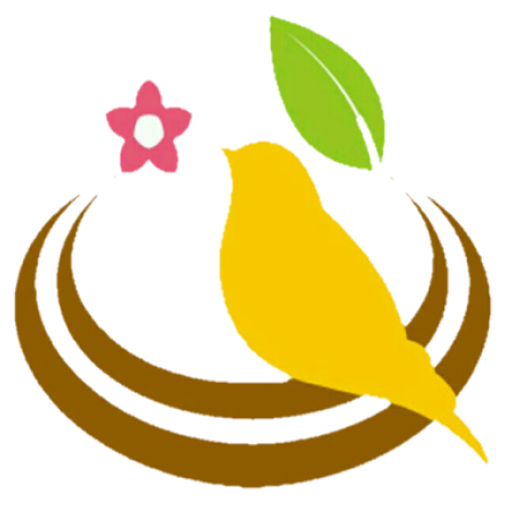Read the article and have a discussion based on the following questions.
記事を読んで次の質問に応えてください。
Lesson 1: A Fun Day Out
A Fun Day Out
Yesterday, Tom woke up early at 6:00 a.m. and had breakfast with his mother. After eating, he was ready to play. “Let’s go to the park!” he said. His mother smiled and agreed, so they walked to the park together.
Tom saw some friends in the park and played soccer with them. They kicked the ball, ran, and laughed a lot. Tom had a great time there. After a fun game, he and his mother went back home for lunch.
After lunch, Tom’s mother said, “Let’s go shopping.” They visited some shops, looked around, and found a great music CD. “Let’s buy this for your brother’s birthday tomorrow,” his mother said. Tom was excited. They bought the CD as a present.
At home, they listened to some music and sang together. Tom had a wonderful day with his mother and looked forward to giving his brother the present the next day. He felt tired but very happy!
Vocabularies
wake up 目がさめる(mega sameru)、起きる(okiru)
I wake up early every day. (私は毎日早く起きます。)
woke wake(目がさめる mega sameru)の過去形 目がさめた(mega sameta)
He woke up at 6:00 a.m. (彼は朝6時に目がさめました。)
be ready to ~する準備ができている(~suru junbi ga dekiteiru)
I am ready to play soccer. (私はサッカーをする準備ができています。)
said say(言う iu)の過去形 言った(itta)
She said, “Let’s go to the park.” (彼女は「公園に行こう」と言いました。)
agree 賛成する(sansei suru)
They agreed to play together. (彼らは一緒に遊ぶことに賛成しました。)
walk to ~へ歩いて行く(~e aruite iku)
We walked to the station. (私たちは駅まで歩いて行きました。)
together 一緒に(issho ni)
They studied together. (彼らは一緒に勉強しました。)
saw see(見る miru)の過去形 見た(mita)
I saw my friends at the park. (私は公園で友達を見ました。)
laugh 笑う(warau)
They laughed a lot. (彼らはたくさん笑いました。)
a lot たくさん(takusan)
He plays a lot. (彼はたくさん遊びます。)
go back home 家に帰る(ie ni kaeru)
She went back home after school. (彼女は放課後、家に帰りました。)
go –ing ~しに行く(~shi ni iku)
Let’s go shopping. (買い物に行きましょう。)
look around 見回す(mimawasu)
They looked around the store. (彼らは店内を見回しました。)
found find(見つける mitsukeru)の過去形 見つけた(mitsuketa)
I found a nice book. (私は素敵な本を見つけました。)
excited ワクワクした(wakuwaku shita)
She was excited to see her friends. (彼女は友達に会えてワクワクしていました。)
bought buy(買う kau)の過去形 買った(katta)
He bought a gift for his friend. (彼は友達のために贈り物を買いました。)
as a present プレゼントとして(purezento toshite)
She gave it to me as a present. (彼女はそれをプレゼントとして私にくれました。)
sang sing(歌う utau)の過去形 歌った(utatta)
We sang a song together. (私たちは一緒に歌を歌いました。)
look forward to –ing ~するのを楽しみにする(~suru no o tanoshimi ni suru)
I look forward to meeting you. (私はあなたに会うのを楽しみにしています。)
the next day 翌日(yokujitsu)
We will go there the next day. (私たちは翌日そこに行きます。)
felt feel(感じる kanjiru)の過去形 感じた(kanjita)
He felt happy. (彼は嬉しく感じました。)
Questions
1. What time did Tom wake up yesterday morning?
2. What did Tom do in the park?
3. Was the music CD a present for Tom’s friend?
4. What time do you usually wake up on weekends?(あなたは週末何時に起きますか。)
5. What do you like to do with your friends?(あなたは友達と何をするのが好きですか。)
6. What do you want for your next birthday? Why?(あなたは次の誕生日に何が欲しいですか。)
7. 次の日本文に合うように空所に適語を入れましょう。
Fill in the blanks with appropriate words to match the following Japanese sentences.
a) 彼は朝6時に目がさめました。
He (w )(u ) at 6:00 a.m.
b) 彼女は「公園に行こう」と言いました。
She (s ), “Let’s go to the park.”
c) 彼らは一緒に勉強しました。
They studied (t ).
d)彼らはたくさん笑いました。
They (l ) a lot.
e) 買い物に行きましょう。
Let’s (g )(s ).
f) 私は素敵な本を見つけました。
I (f ) a nice book.
g) 彼は友達のために贈り物を買いました。
He (b ) a gift for his friend.
h) 私たちは一緒に歌を歌いました。
We (s ) a song together.
i) 私はあなたに会うのを楽しみにしています。
I (l )(f )(t ) meeting you.
j) 彼はたくさん遊びます。
He plays (a )(l ).
k) 彼女は友達に会えてワクワクしていました。
She was (e ) to see her friends.
l) 私たちは駅まで歩いて行きました。
We (w ) to the station.
m) 私は公園で友達を見ました。
I (s ) my friends at the park.
n)彼は嬉しく感じました。
He (f ) happy.

